Solar backup can keep your power on during hurricanes, wildfires, and other extreme storms
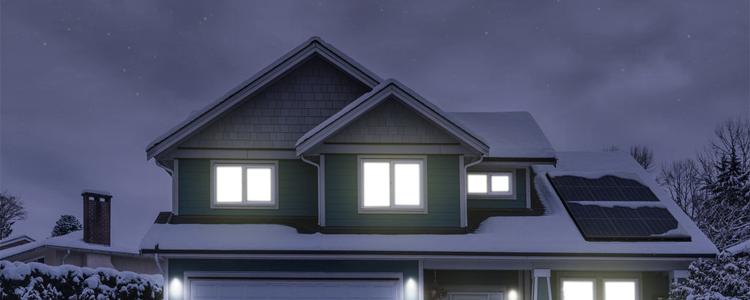
Many of the areas of the country that are most populated are also the most susceptible to extreme weather. It’s a bit ironic because weather is a big part of the reason that these places are so desirable. But when that weather gets extreme, things can get scary.
One of the biggest challenges facing communities as they deal with extreme weather is providing reliable power. It’s no secret that the grid infrastructure in the United States has seen better days. As it continues to age, and as extreme weather worsens, the frequency of widespread and long-lasting blackouts (as well as sudden rate hikes) is increasing. Fortunately, the ever improving technologies associated with solar and powering your own home have come along with a way to keep your power on, even in the event of a blackout.
How solar can provide backup power during an emergency
Almost everybody’s familiar with the concept of a generator, so we’ll use that as our basic example. Think of the generator like a battery, one that’s charged by gasoline. Now take that example, but replace the gasoline with clean, solar energy produced right on your roof. That’s how our solar battery systems work.
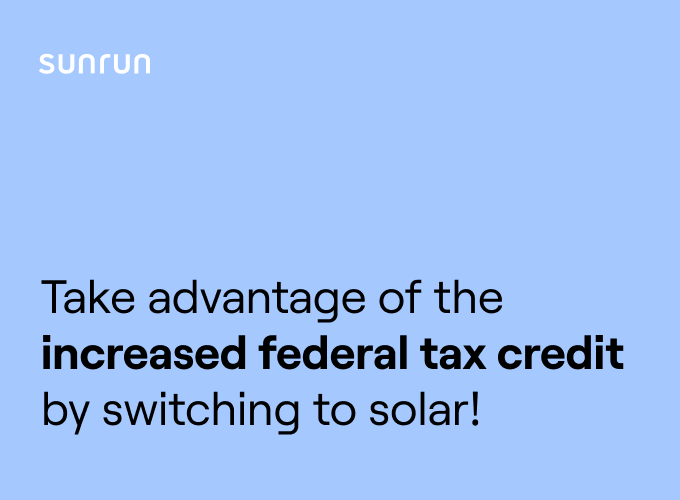
See if you qualify for the
26% federal tax credit
Thanks so much! We'll call you shortly.
Sorry, we are not taking new customers in your area yet
Refer a friend. Get $1000
When a home’s solar energy system generates more power than the home is using, the battery stores this excess power, and holds it in reserve for future use. If (as is often the case) a blackout coincides with the decidedly-not-sunny weather of a hurricane, cyclone, or winter storm, people are able to tap into those reserves to ensure their home still has power. This is better than a generator for a couple big reasons.
First, it syncs with your solar energy system so it will switch on instantaneously when needed. It’s something you never even have to think about, which is a huge benefit during extreme weather when you need it most but have plenty of other things to worry about. Our app also gives you quick access to the status of your home energy so you can have peace of mind at your fingertips.
So with a solar battery system, there’s no rushing to the gas station, hoping the lines aren’t wildly long (and crossing your fingers that the power there is on). There’s no need to rely on your memory about how to get it started. There’s no paying for the fuel each time you use it, or having to deal with the smell and fumes. The solar battery system is safe, does the work for you, and is ready right when you need it.
It’s not some brand new experiment either. In fact, over the course of just four months in 2020, Sunrun Brightbox batteries were able to provide the equivalent of 315 days of power to people affected by natural disasters.
The second big benefit, when compared to generators, is that you’re doing your part to help curb the climate problems that have led to these more destructive storms in recent years. You’re using clean, renewable energy for your home, as well as for its backup power, instead of contributing more fossil fuel emissions. It’s a way to keep your family safe now, while also keeping an eye towards the future of your children. It’s energy that’s yours, without having to rely on a utility company and its infrastructure to get it to you.
So, in summary, home solar + battery allows you to keep your lights on, food fresh, and AC/heater running. Depending on your needs and area, you can pick a battery option that provides whole-home backup or backup power for your most essential circuits. And with your rooftop panels, that battery will recharge each day when the sun rises so you can power through extended blackouts without lifting a finger.
Backup power and extreme weather prep
As you may have guessed, simply having a reliable source of energy in the face of blackouts takes a huge burden away in the event a large storm or wildfire impacts your neighborhood. While it’s never a bad idea to have non-perishable food items on hand as an emergency backup, in most cases you won’t have to resort to them. It also means not having to worry about how to keep medications (e.g. insulin for diabetes) cold when the weather’s hot and muggy and you don’t have access to a working fridge. Or it means not stressing about keeping your family warm when the weather is cold.
Of course, having solar backup power won’t magically give you storm windows, or protect your home from flooding. But the access to a source of power could potentially even help with those issues. If you have mechanical hurricane shutters, for example, you know you’ll be able to close and open them as needed. And, worst case scenario, if there is water coming into your home, you could power a water pump to try to prevent an extensive amount of damage.
Let us be clear—simply having power when disaster strikes doesn’t make anybody invincible. It may, however, help you stay tuned to news reports and access advice and government updates, letting you know when it’s safe to go back outside. It goes without saying, yet bears repeating, that you should always heed any evacuation orders and guidance from local officials.
The future of energy in the face of a changing climate and deteriorating grid
No matter the reason—be it failed infrastructure, dependence on fossil fuels, or simply the desire to gain independence from relying on a local utility company—many people are looking for the future of energy. We all know the various problems. It’s time for solutions.
We’ve covered how solar battery systems can be a solution in the event of storms. But it’s worth noting some of the other innovations we’re working towards to help everybody live a safer, brighter, future together.
As solar technology continues to improve, efficiency gains from it stand to improve as well. And we’re talking about a technology that is already capable of powering a home long after sunset. The world isn’t moved by small efficiency gains though. As humans, we crave revolutions in technology to make our lives easier.
One way we’re working to achieve just that is by teaming with grid services nationwide and leading the charge on the creation of virtual power plants. In a nutshell, this would mean pooling together the solar power generated by multiple homes in a community, as a benefit to the community at large. Solar energy already reduces strain on the entire electrical grid, but when combined into a neighborhood, it has the ability to reduce blackouts for all.
For many, this means being able to do more than offer food or shelter to those who need it in the event of a hurricane, cyclone, or wildfire. It means banding together to ensure nobody in your community is without power. We’re facing unprecedented challenges as a society, but when we work as one, we can power through together.
Sunrun Team
Recommended Articles
-
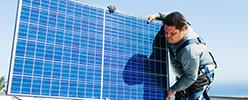
Solar panel maintenance is easy with Sunrun
Stuff happens, right? Sure it does. That’s life. But that’s why you need to know that with...
-
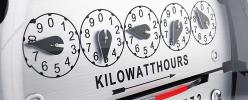
Underproduction
The energy that is generated below the committed level in a customer’s agreement.
-
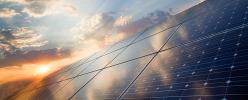
What is Alternative Energy?
Anyone watching the news lately has likely heard plenty of discord concerning climate change....
-

Electrical Panel Upgrade
Electrical panels divide incoming electrical power from the grid into subsidiary circuits to distribute power throughout the building.